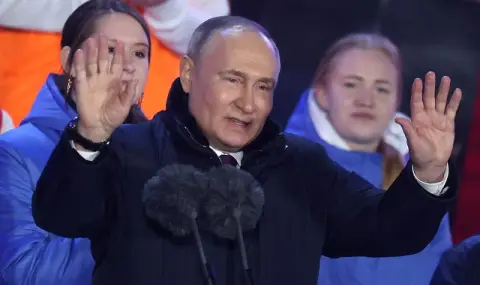Russia faces significant military and economic challenges that could seriously compromise its ability to wage its war in Ukraine.
This is stated in an analysis by the Institute for the Study of War (ISW).
These are factors that could strengthen the Kremlin’s desire to achieve its goals in the short term by brokering a ceasefire or peace talks, if possible.
Russia is trying to seize large areas of Ukraine and establish a pro-Russian puppet government in Kiev, but it is likely to continue military operations in Ukraine if it fails to achieve a complete surrender of its adversary through diplomacy.
ISW has already noted that Russia’s current and projected economic problems are closely linked to Russian losses on the battlefield and that it is not possible The United States or the West as a whole can exert maximum pressure on Russia through economic means alone.
The United States can take advantage of Russia's vulnerability and gain a stronger negotiating position by continuing - or increasing - military aid to Ukraine so that Ukrainian forces can continue to inflict significant losses of manpower and materiel on Russia.
The U.S. intelligence report states that Russia has suffered significant losses in Ukraine and that it must contend with the poor quality of its new recruits.
The U.S. intelligence community has indicated that the Russian economy faces significant challenges as Moscow continues to balance the allocation of resources between defense industrial production and the civilian sectors. The commander of the U.S. European Command (EUCOM) and NATO's Supreme Allied Commander Europe (SACEUR), General Christopher Cavoli, said on April 3 that Russian forces had lost more than 4,000 tanks in Ukraine.
Cavoli said that Russia began the war with a total of 13,000 tanks and is "starting to get close to the end" of viable tanks in its stockpile. Cavoli noted that Russia has expanded its capabilities to produce shells, cruise missiles and unmanned aerial vehicles (FPVs) and that Russia is preparing to either continue offensive operations in Ukraine or launch a future campaign against a NATO member state.
Cavoli said that the war in Ukraine has "distorted" the Russian economy and has "accelerated" the Russian defense industry at the expense of the Russian civilian economic sector and that it may be difficult for Russia to "remove" this imbalance.
Cavoli assessed that Russia would be able to replace the significant personnel losses suffered in Ukraine before a future conflict in Europe, but noted that Russia's ability to replace material losses depended on Ukraine's ability to inflict greater losses.
Putin "probably" is more willing to take the risks of a longer war than to agree to an unfavorable end to the war for Russia.
Putin remains committed to pursuing Ukraine's surrender by both diplomatic and military means.
ISW has previously reported that Putin is using the ongoing negotiations to secure further concessions from Ukraine and the West as part of his long-term drive for Ukraine's complete surrender.
On April 2, the U.S. Treasury Department announced that the United States had lifted sanctions against Karina Rotenberg, the wife of Russian businessman and oligarch Boris Rotenberg.
Ukrainian forces have advanced near Pokrovsk. Russian forces advanced to Kursk and Belgorod and near Liman, Toretsk, Kurakhovo, and Velika Novosilka.
On April 3, the Russian parliament (State Duma) passed a bill granting veteran status to Russian servicemen and volunteer units who fought in the Kursk region.
